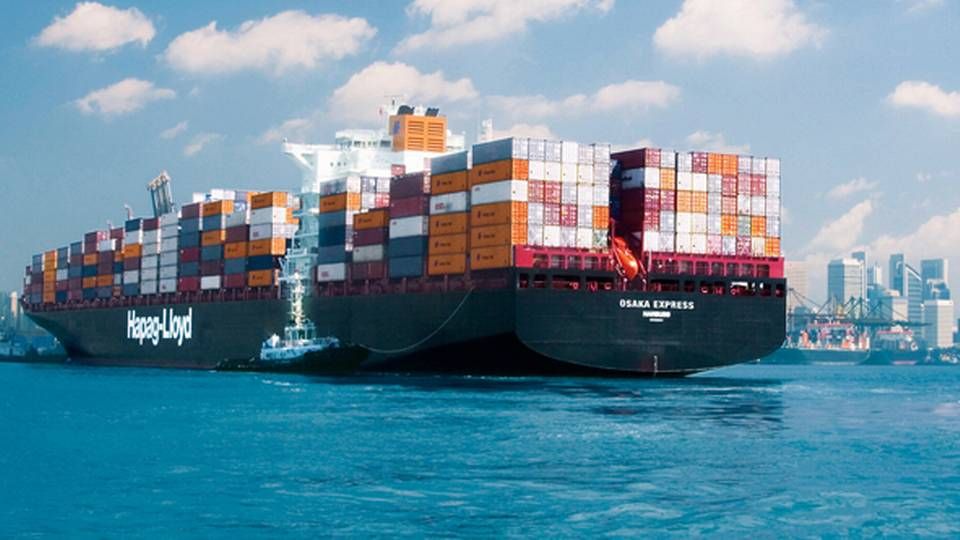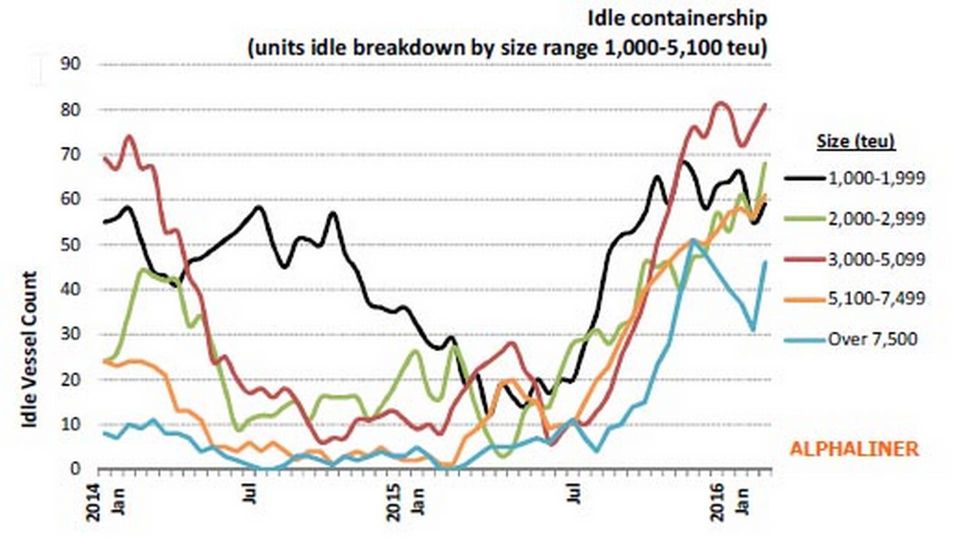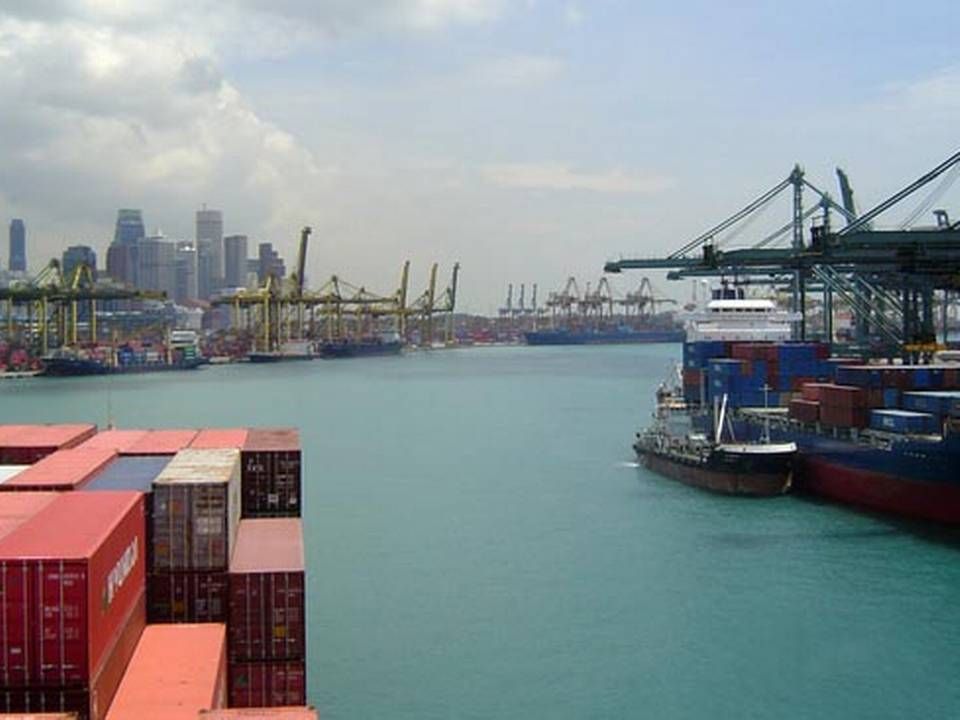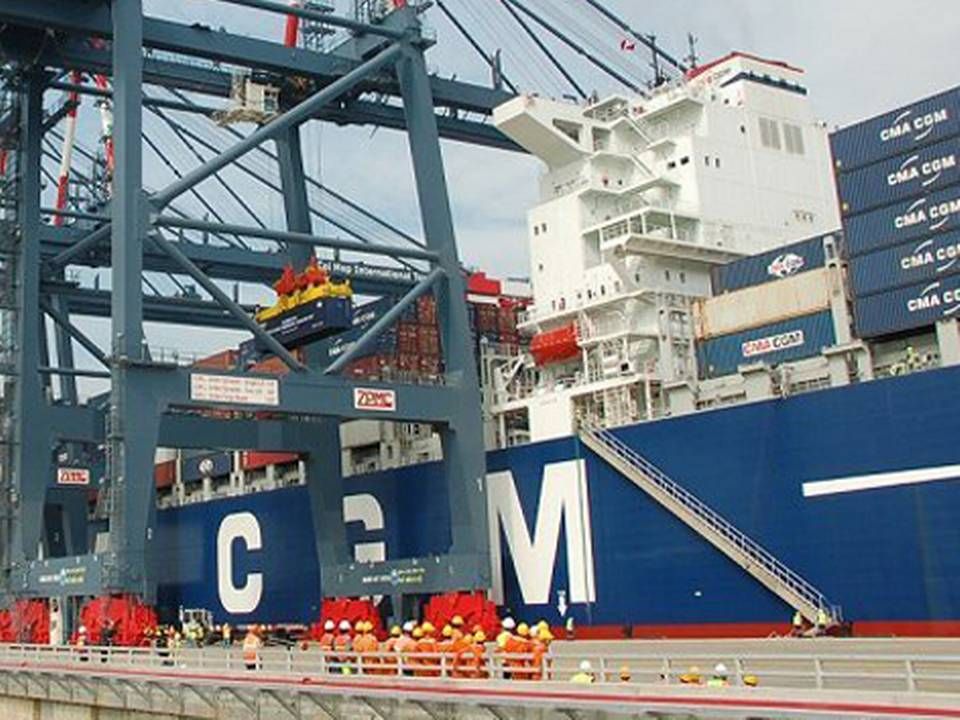Alphaliner: Idled fleet climbs to six-year high

The major liner carriers have pulled ships from the global container fleet on a large scale following the Chinese New Year. An event that traditionally brings a surge in demand which, however, failed to emerge this year. As such, the idled container fleet has now reached a six-year high, notes Alphaliner in an analysis.
Per February 22nd, the idle container fleet counted 346 vessels of 500 teu or above, corresponding to 1.43 million teu or 7.3 percent of the current global container fleet.
This level is expected to hold for the next two months after carriers have canceled around 20 sailings on the Far East-North Europe tradelane alone in February.
"The number of idle ships of above 7,500 teu will remain high in the next two months, as demand is expected to remain muted until April, with carriers reluctant to add any more capacity in the light of the weak market conditions," projects Alphaliner.
The idled container fleet

Source: Alphaliner
Carrier have been quick to pull out vessels after capacity in fact increased during the Chinese New Year, which failed to benefit the carriers as the anticipated surge in demand did not emerge, noted Morgan Stanley in late February, adding that the liner carriers would like withdraw capacity these months.
When demand did not increase, the spot rates instead declined for the sixth consecutive week. On February 19th 2016, the cost of shipping a container from the Far East to Europe stood at USD 332, compared to USD 1,232 at the beginning of January when the container players once again tried to carry out a rate increase.
Morgan Stanley: Gloomy container prospects for 2016
Alphaliner: French-Chinese alliance threatens 2M
Related articles
Morgan Stanley: Gloomy container prospects for 2016
For subscribers
New Chinese container giant: Merger crucial for survival
For subscribers





















